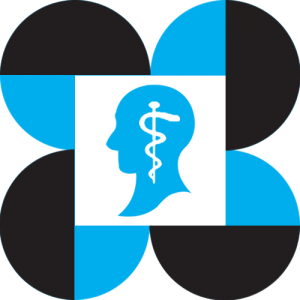-
 Maria Lourdes SantosMay 31, 2013 at 7:05 pm #1422
Maria Lourdes SantosMay 31, 2013 at 7:05 pm #1422Bakit Mahalaga ang Kalusugan ng Ina at Anak?
31 May 2013TAMANG KALUSUGAN NG INA AT ANAK?
Problems: Lack of Awareness Re: Primary Health Care, Manifested by lack of Midwives (specially in geographically isolated areas), persisting high maternal and infant mortality rates, lack of necessary vaccinations, dwindling supply of contraceptives, and spread of infectious diseases primarily affecting the young and old.
Suggestions: Decentralization of Health System by DOH through the close participation and initiative of LGUs and local health workers, i.e. accredited and registered birthing facilities, increase of the number of midwives, increase supply chain of contraceptives and vaccines, counselling and support of mothers via trained peer counsellors‘CRITICAL WINDOW OF OPPORTUNITY’ FOR NUTRITION
According to recent studies, the first 1000 days of an individual’s life is regarded as the ‘critical window of opportunity’ for the nourishment of children, and hence emphasizes the importance of breastfeeding toddlers and the effectiveness of nutritional programs. The problems encountered usually revolve around the lack of awareness and capacity of mothers to provide the proper nutrition to their children. Low motivation on the part of doctors to educate mothers with regards to the importance of EBF, the dilution of breastmilk with water, familial pressure, and the inability or unwillingness to breast feed are major contributors to the malnutrition. Educational programs are now being implemented to resolve the misconceptions and lack of knowledge of proper breastfeeding methods. Nutritional programs are also being implemented to provide supplemental nutrition to pre-school or school-age children. However, more focus should also be given to the development of maternal health of breastfeeding mothers.MATERNITY AND NEWBORN CARE PACKAGES
PhilHealth, because of its mandate to provide mothers and babies the means to gain financial access to essential health services, has collaborated with a wide spectrum of organizations at different levels of engagement. Given its crucial role, PhilHealth sees the need to convene its partners in a Maternal and Child Care Summit to maximize the resources and efforts dedicated to ensuring maternal and child health, in particular, to leverage the opportunities provided by PhilHealth through the maternity and child care benefits such as Maternity Care Package, Newborn Care Package and campaigns such as 1 MCP Provider for 1 Municipality (1 MOM) to achieve a common aspiration for healthy mothers and new born children.
Ms. Mary Antonette Remote summed up the various services rendered by the MCP andNCP:The services covered by Maternity Care Package include:
pre-natal check-up
normal delivery
health education and counseling including breastfeeding and family planningthe services covered by Newborn Care Package include:
Performance of essential newborn care
immediate drying of the newborn,
early skin-to-skin contact,
cord clamping,
non-separadon of mother/baby for early breastfeeding initiation,
eye prophylaxis,
Vitamin K administration,
weighing the newborn,
BCG vaccination
initial Hepatitis B vaccination
Newborn Screening Test (NBS),
Newborn Hearing Screening Test, and
Professional fee (that includes breastfeeding advice and physical examination of the baby, among others).Exclusive Breastfeeding, Lactation MGT Counselling
Only 27% of children less than six months were being exclusively breastfed (EBF). EBF is the optimal feeding method for children less than six months – and contributes to some 13% of deaths in children of that age.
The following are the main reasons for the non-compliance of EBF:
1) Insufficient Milk Production, or the perception thereof
2) Family Recommendations against EBF
3) Poverty
The importance of colostrums and the proper latching-on of the child were also given importance. All points of contact are indicators that there is a need to institutionalize lactation management.Maternal and Child Undernutrition
Preventable Factor: Nutrition
Undernutrition increases the risk of disease and undernourished children who get sick are more likely to die from illness compared to well-nourished children. It has been estimated that nutritional risk factors are responsible for 35% of child deaths. Yet, nutrition is chronically underfunded compared to health interventions. DOST launched DOST PINOY Nutritional Intervention program with FNRI in provinces. Critical Examination of existing problems is a necessary step in preventing undernutrition. -
|
You must be logged in to reply to this topic.



